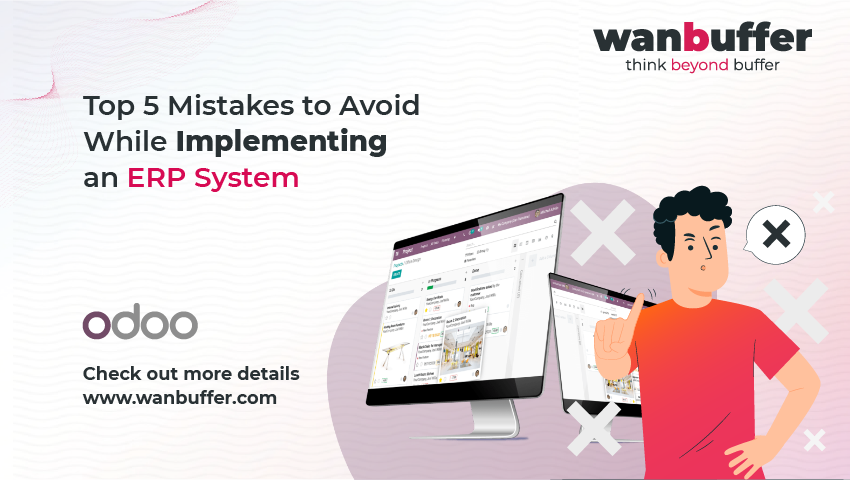
Table of Contents
1. Introduction
Enterprise Resource Planning (ERP) systems are vital for organizations looking to centralize operations, boost efficiency, and improve decision-making. However, ERP implementations are complex projects that can fail to deliver expected results if not handled properly.
Many companies fall into the same traps when deploying a new ERP platform. Understanding and avoiding these common mistakes can make the difference between a smooth rollout and a costly disruption.
2. Mistake 1: Lack of Clear Objectives
Implementing an ERP without well-defined goals is like setting sail without a map. Too often, businesses rush into deployment without knowing what they hope to achieve beyond general efficiency gains.
Avoid This By:
- Identifying clear business problems the ERP must solve
- Setting measurable KPIs for each department
- Aligning goals with broader organizational strategy
A clear roadmap ensures all teams are aligned and helps you assess ROI accurately.
3. Mistake 2: Underestimating Change Management
One of the biggest challenges in ERP projects isn’t the software—it’s the people. Employees resist change when they don’t understand its benefits or aren’t adequately trained.
Avoid This By:
- Communicating early and transparently about the ERP project
- Involving department heads in planning and feedback loops
- Offering hands-on training and support for end users
Effective change management builds trust, reduces friction, and accelerates adoption.
4. Mistake 3: Poor Vendor Selection
Not all ERP vendors are created equal. Choosing the wrong implementation partner or platform can lead to budget overruns, timeline delays, and misalignment with your business needs.
Avoid This By:
- Evaluating vendors based on industry experience, scalability, and support
- Asking for client references and checking case studies
- Ensuring the vendor understands your business model and compliance needs
A vendor with domain expertise can guide you through best practices and avoid costly pitfalls.
5. Mistake 4: Inadequate Data Migration Planning
Data migration is a critical and often overlooked component. Migrating poor-quality or incomplete data into your new ERP can sabotage the system from the start.
Avoid This By:
- Cleaning and standardizing data before migration
- Defining clear data ownership and validation protocols
- Testing data accuracy thoroughly before go-live
Good data hygiene ensures your new system runs smoothly and supports informed decision-making.
6. Mistake 5: Ignoring Post-Implementation Support
ERP implementation isn’t finished at go-live. Many businesses neglect post-deployment support, assuming the system will run perfectly from day one.
Avoid This By:
- Planning for continuous training and system updates
- Setting up an internal support team or superusers
- Scheduling periodic reviews to assess performance and improvements
Ongoing support ensures your ERP evolves with your business and continues to deliver value.
Learn how AI supports ERP efficiency in our related blog
7. Conclusion
An ERP system has the potential to revolutionize your business operations—but only if implemented thoughtfully. By avoiding these five common mistakes—unclear objectives, weak change management, poor vendor choice, bad data planning, and lack of support—you increase your chances of success dramatically.
Thinking of implementing or upgrading your ERP system? Contact Wan Buffer Services to ensure a successful and future-ready ERP rollout, customized to your business needs.
8. FAQs
-
How long does it typically take to implement an ERP system?
Implementation time can vary based on business size and scope but generally takes between 3 to 12 months.
-
Is it necessary to customize ERP software?
Not always. Many ERP systems, like Odoo, offer modular, configurable options that reduce the need for deep customization.
-
Can small businesses benefit from ERP solutions?
Absolutely. Modern ERPs are scalable and designed to support small businesses in growing efficiently.

